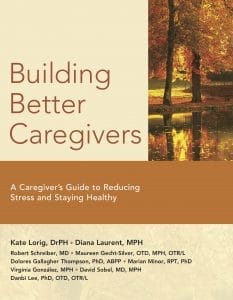Next to the fear of physical dependence, many people fear not having enough money to pay for their own and their care partner’s needs. Being sick often requires expensive care and treatment. If you’re not able to work because of illness or you’re caregiving full time, the loss of income, and especially the loss of your health insurance coverage, might present an overwhelming financial problem. You can, however, avoid some of the risks by planning and knowing your resources.
Health insurance and Medicare may meet only a part of the ultimate cost of care. Medicare doesn’t cover everything, and most private “Medigap” insurance policies cover only the 20 percent not covered by Medicare. Usually, they don’t cover procedures or treatment that aren’t also covered by Medicare.
Supplemental insurance policies, however, offer the kind of coverage that provides for care needs that Medicare and Medigap insurance don’t pay for. If you plan to buy such insurance for yourself and/or your care partner, carefully read the sections on limitations and exclusions. Be sure the policy covers nursing home care at a daily rate that’s realistic for your community. Make sure you know how long they’ll pay for care. There’s usually a cap of three months or so in a skilled nursing or rehabilitation facility — less if you or your care partner are judged to not be getting better and only need “custodial” care.
Health care reform continues to bring many changes in both Medicare and private insurance, some of which could be difficult to understand. Talk to people at your local senior center, Area Agency on Aging or disability organization to find trustworthy sources of information.
If you’re too sick to work — either permanently or for some extended period — you may be entitled to draw Social Security based on your disability. If you have dependent children, they would also receive benefits. If you’ve been disabled for a specified period (as of this writing, it’s two years), you might be entitled to Medicare coverage for your medical treatment needs. Disability payments are based only on disability, not on need. If Social Security benefits are unavailable or insufficient, the Supplemental Security Income (SSI) program is available to individuals who meet the eligibility criteria for Medicaid.
If you have minimal savings and little or no income, the federal Medicaid program may pay for medical treatment and long-term skilled or custodial care. The eligibility rules on assets and income differ from state to state. You should consult your local social services department to see if you’re entitled to benefits. An elder care attorney could also be able to help.
The social services department in a hospital where you or your care partner have obtained treatment can advise you about the probability of being eligible for these programs. Local agencies serving the disabled usually have advisers who can refer you to programs and resources for which you may be eligible. Also, senior centers often have counselors knowledgeable about the ins and outs of health care insurance.
If you or your care partner are a U.S. military veteran, check with your nearest Veterans Administration facility or the VA website about services. You may be eligible for a range of services at very low or no cost.
If you or your care partner owns a home, you might be able to get a reverse mortgage, whereby the bank pays you a monthly amount based on the value of your home. The nice thing about a reverse mortgage is that no matter how long you live, you can never be thrown out of your home. It’s usually better to take out a reverse mortgage than to borrow against the assets you have in your house.
Be sure to talk to a good financial planner who is knowledgeable about health- and aging-related issues before making any decisions.
Kate Lorig, DrPH, is professor emerita at Stanford University School of Medicine and a partner in the Self-Management Resource Center (SMRC). As director of the Stanford Patient Education Research Center she was a co-developer of the Building Better Caregiver Program. For 20 years, Kate watched her mother care for her father, who was severely disabled by a stroke. She co-authored Building Better Caregivers: A Family Caregiver’s Guide to Reducing Stress and Staying Healthy (Bull Publishing, June 27, 2018) with Diana Laurent, MPH, Robert Schreiber, MD Maureen Gecht-Silver, OTD. MPH, OTR/L Dolores Gallagher Thompson, PhD, ABPP Marian Minor, RPT, PhD Virginia González, MPH David Sobel, MD, MPH Danbi Lee, PhD, OTD, OTR/L. Learn more at selfmanagementresource.com.






